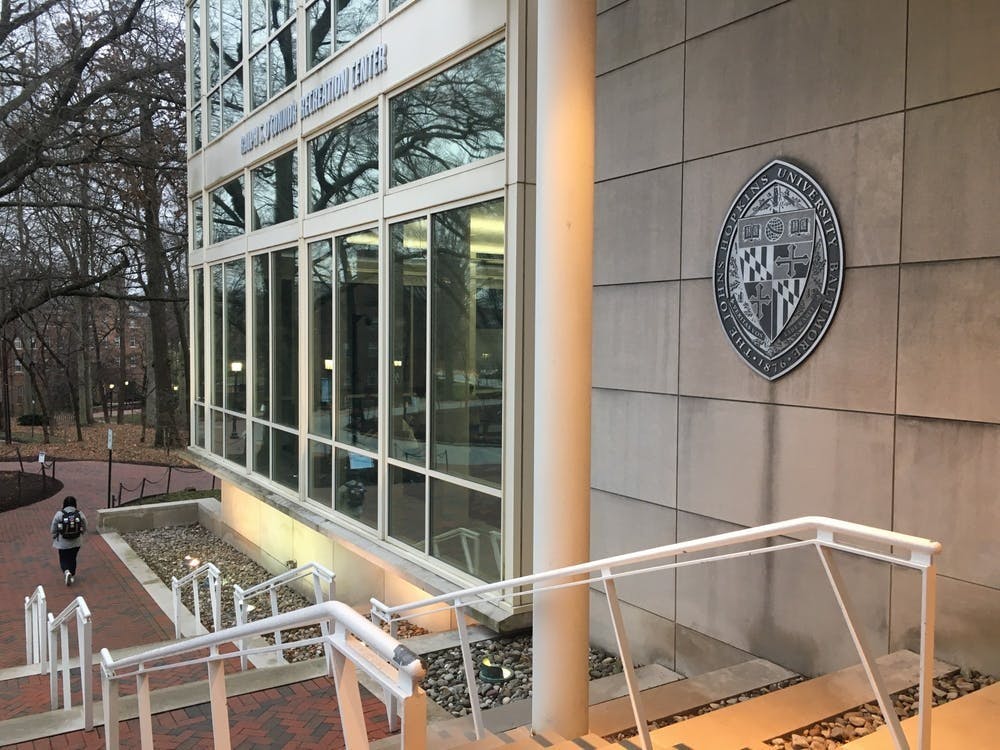With a hybrid fall semester closing in, Hopkins has taken important precautions to ensure the health and safety of its staff and students, such as mandatory masking on campus and the suspension of all in-person events. The University’s commitment to “equity and fairness,” however, appears hollow when we examine the plans to reopen the Recreation Center.
In the Health & Wellness section of the Coronavirus Information website, there are lengthy guidelines explaining how the Rec Center will open “safely” in the fall, but it is obvious to me — and to dozens of my fellow employees — that our jobs will become much more dangerous.
I have worked as a lifeguard and facility manager at the Rec Center since the start of my freshman year. Like many low-income students, I needed a job to pay for groceries, textbooks and other expenses during my college years, and I was grateful to find one at the Rec Center.
When it was announced that our facility would be completely under construction for the entirety of my senior year, I was anxious about how difficult my job would become. Now that there is a deadly pandemic in the U.S. showing no signs of stopping, keeping the Rec Center open is beyond challenging; it is dangerous and unethical.
Gyms, in general, should be avoided at all costs during any kind of respiratory disease outbreak. They are enclosed spaces where people are breathing heavily, sweating and touching the same surfaces over and over. According to the Centers for Disease Control and Prevention (CDC), the coronavirus (COVID-19) is primarily spread through droplet transmission when people breathe, cough or sneeze.
Even with mandatory masking, people will still need to constantly pull down their masks in order to drink water. Additionally, sawdust and other construction debris cause coughing and sneezing, which increases droplet transmission of COVID-19.
Rec Center renovations have moved all of the equipment onto two basketball courts, leaving a third for group fitness classes. Two basketball courts together leave less than 10,000 square feet for machines, weight lifting areas, walkways, a temporary staircase due to construction and patrons. It will be close to impossible to enforce six-foot social distancing in a space that small, even with only 60 patrons in the building (not including group fitness classes or employees). The burden of enforcing new Rec Center safety measures such as masks, social distancing and cleaning equipment will not be placed on patrons, but rather on staff.
I myself have been racially profiled, cursed at and completely ignored while trying to enforce policies as simple as wearing a shirt. With new regulations during a pandemic and the disruption from renovations, employees will be forced to put themselves in close proximity to potentially infected individuals to enforce these policies and will most likely have to deal with extremely rude, condescending and even violent people.
Furthermore, the janitorial staff will already be working overtime to keep dorms, classrooms and other essential spaces clean; they should not be burdened with a non-essential space such as a gym.
Lastly, both the student employees and professional staff at the Rec Center are disproportionately Black. We have been shown to be at a higher risk for COVID-19 complications and death than whites and Asians, who make up the majority of the University’s student body. Opening the gym during a pandemic does very little to help the Hopkins community at large, since so few people will be able to use the gym. Opening does, however, put hundreds of low-income students and staff members in unnecessary danger.
A school with a $6.2 billion endowment that is willing to spend $27 million on a new gym can afford to keep the gym closed and pay its employees until it is safe for them to return to work. Doing so would be the only way to uphold the University’s commitment to equity and fairness.
Amani Nelson is a rising senior from Gaithersburg, Maryland studying Public Health and Medicine, Science & the Humanities. She is the Head Facility Manager of Fitness at the Recreation Center.





